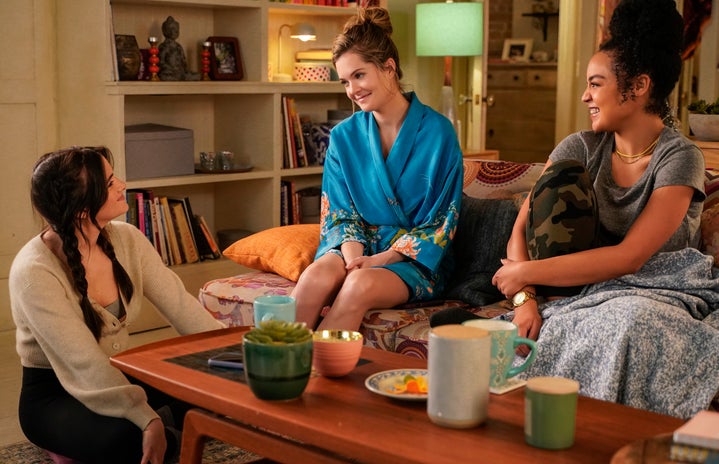This story is part of a partnership with the TCU Women’s Health Initiative. The purpose of the Women’s Health Initiative is to educate students at TCU and the general public about women’s health issues as well as advocate for women’s health issues on campus and in local communities. In addition, they support women who are struggling/have struggled with women’s health conditions, including but not limited to endometriosis, PCOS, fibromyalgia, and other autoimmune conditions. For more information on this organization, contact President Mackenzie Kahrhoff at m.a.kahrhoff@tcu.edu.
My mom has always instilled the importance of a good girl-power show in me. In 2017, when I was a sophomore in high school, we started watching The Bold Type. This show follows three best friends who work at a global magazine; Sutton in fashion, Jane as a writer, and Kat in social media. It’s raw, it’s real, and it tackles all sorts of issues, from gun control to sexual abuse in the workplace. It is also the first non-medical show where I ever saw a storyline focused on women’s health.
As a 26-year-old woman whose mother passed away from breast cancer, Jane grapples with the choice of whether or not to get tested for a mutation in her BRCA gene. The BRCA gene repairs DNA and helps prevent breast cancer. Women who have a mutation in this gene have a 45-65% chance of developing breast cancer before age 70, depending on what kind of mutation they inherit. In women with normal BRCA genes, this risk is only 12%. Jane gets tested and discovers that she has a mutation.
Before watching The Bold Type, I had never heard of BRCA before. Granted, it doesn’t run in my family, but I felt like it was something that I should have been made aware of. It’s a women’s health issue, so it matters to me.
In the season three finale, Jane chooses to have a double mastectomy after finding a lump in her breast. She decides that living in fear isn’t worth it. After this decision, her storyline follows dealing with this and how it affects her relationships. The full arc of a woman dealing with the before, during, and after of living with a health issue is something that I have never seen on TV before, but it’s something that should be more prevalent.
Shows like The Bold Type, Good Girls, and Sex and the City have extraordinary power. These types of series focus on strong, empowered women, but all too often, the biggest women’s health issue these women deal with is abortion. Abortion advocacy and awareness are so important, don’t get me wrong, but there are so many other issues affecting women that are lesser-known and deserve air time. Like BRCA. Like endometriosis, which is difficult to diagnose and often a long journey for those who have it. Like PCOS. The list goes on and on.
Medical dramas are great for raising awareness of all types of medical issues, but too often they only focus on the time of crisis. Female-focused shows have the opportunity to show the full arc of a character, from diagnosis to crisis to recovery or acceptance. Because of The Bold Type, I am just a little more educated than before on an issue that could very well apply to me or one of my friends. It is my hope that other shows will follow its lead and use their female characters to show the health issues that strong women face every day.


